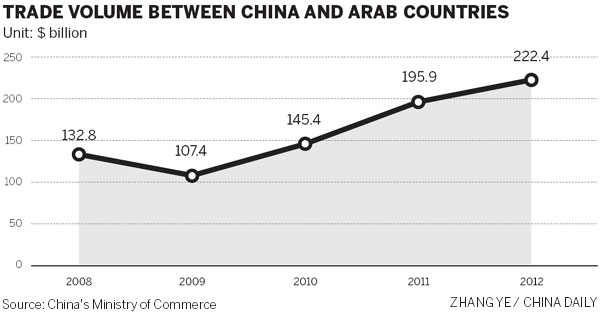Technology 'key' to trade with Arab world

Chinese companies will have to add more high-tech elements to their products, if they want to cash in on the growing trade between China and the Arab world, said Li Jinzao, China's vice-minister of commerce.
"Amid economic globalization and regional integration, the economic and trade ties between China and the Arab world are increasingly close, with the rapid rise of bilateral trade," said Li at a news conference on Wednesday.
In 2012, bilateral trade between China and Arab nations hit $222.4 billion, up 14 percent and a record high. Chinese exports to Arab countries stood at $91.3 billion and imports from the region reached $131.1 billion.
The Arab world comprises the 22 countries and territories of the Arab League, with a combined population of about 422 million people.
Some Arab nations have oil wealth, such as the member states of the Gulf Cooperation Council, including Bahrain, Qatar, Saudi Arabia and the United Arab Emirates.
"The two sides are important trading partners with each other. Both are keen to adjust their industrial structure for exports to seize more business opportunities," Li said.
"Energy cooperation, high-end machinery and daily necessities will play a key role in dominating the trade between China and the Arab markets over the next three years."
China mainly ships construction machinery, manufacturing equipment, steel, electronic products, textiles and garments, household appliances and daily necessities to Arab countries. Chinese-made passenger vehicles have also become popular family cars in the region.
In addition to crude oil, petrochemicals, fertilizer and other products, Arab countries' exports to China have become more diversified, including marble, olive oil and sesame products.
"With the world experiencing an economic downturn, China is taking concrete steps toward a low-carbon, high-tech economy by curbing overcapacity and energy-intensive industries on the one hand and encouraging industries with a high technology content to boost their exports, on the other," Li said.



















